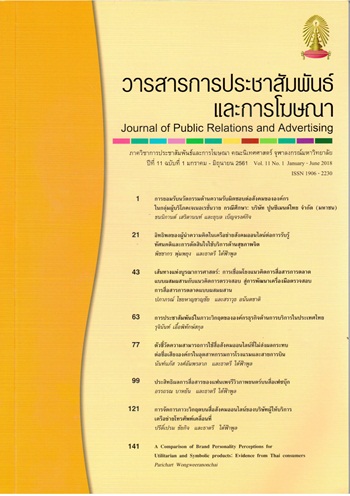ตัวชี้วัดความสามารถการใช้สื่อสังคมออนไลน์ที่ไม่ส่งผลกระทบ ต่อชื่อเสียงองค์กรในอุตสาหกรรมการโรงแรมและสายการบิน
Main Article Content
Abstract
The objectives of the research were to study hospitality and airline employees’
use and motives for using social media; and to gauge employees’ organizationalreputation-related social media competence, including the frequency of risk behavior.In doing so, the research aimed to identify any demographic or occupational trends. The research was conducted by distributing questionnaires to 400 randomly selected subjects in both front office and back office in the hotel and airline industries. The target group was staff members who frequently use social media, specifically Facebook, Instagram or Twitter. The participants were categorized into four groups.
There were 100 subjects in each group. The four groups were comprised of staff members at three-star hotels, five-star hotels, low-cost airlines and full-service airlines. Social-media competence was assessed in five categories: technical skills, visibility awareness, knowledge, social-media communication and impact assessment. The survey found that most staff members were highly competent in terms of technical skills, visibility awareness, knowledge, and social-media communication; however, back-office staff members in three-star hotels were rated moderate in those categories. The data showed negative correlations between duration of employment and frequency of risk behavior, and between age and technical skills. The impactassessment competency was scored as moderate across all subject groups. In terms of motives for using social media, there was no significant difference among groups. Frequency of risk behavior was found to below across all groups.


